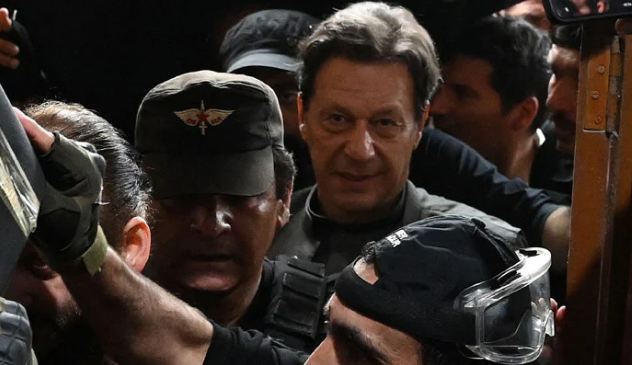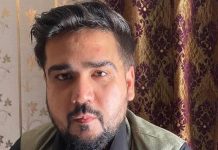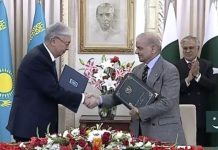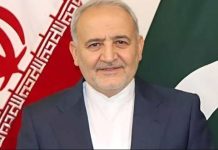ISLAMABAD, OCT 5: In a bid to overturn his disqualification by the Election Commission of Pakistan (ECP), Pakistan Tehreek-e-Insaf (PTI) Chairman Imran Khan on Thursday challenged the trial court verdict in the Toshakhana case in the Islamabad High Court (IHC).
In the plea, the PTI chief’s lawyers contended that they had requested the IHC to completely suspend the trial court verdict that had convicted their client in the Toshakhana case. However, it added that the IHC in its August 28 verdict only suspended the sentence of the PTI chief and not the trial court order.
“That it is settled principle of law that inherent powers of High Court are very wide and undefinable. High Court can make all such orders to do real and substantial justice and it is a fit case to exercise the powers under Section 561-A Cr.P.C. as the omission in not recording the contentions of the learned counsel for the applicant/appellant at the bar praying for suspension of the impugned order dated 05.08.2023 and subsequent non mentioning of the same in the order dated 28.08.2023 is an omission floating on the face of the order,” states the plea.
The petition further contends that Khan’s “rights” faced “serious prejudice” because of the non-suspension of the trial court verdict as ECP barred him from contesting elections.
“However, the same has caused serious prejudice to the rights of the applicant/appellant as he has been disqualified from contesting election by the ECP’s Notification dated 08.08.2023 on the basis of the impugned order of conviction /sentence, hence, the interest of justice demands that the omission stated heretofore may be rectified by exercising the powers under Section 561-A Cr.P.C. and the operation of impugned order may very graciously be ordered to be suspended/stayed till final decision of the appeal,” states the petition.
The petition further states that the disqualification order by the ECP was issued in “haste” despite the conviction not attaining “finality”
“The animosity against the petitioner was not simplisiter confined in getting his conviction, disqualification from contesting election but attempts are being made to remove him from head of party and even proceedings to take away the symbol and throw him out of the arena of general elections being a largest party in Pakistan, the entire leadership of PTI is either incarcerated or amongst the missing persons beside hundreds of false cases registered against loyalist resulting in incarceration and unending ordeal,” said the petition.
The petition urged the court to suspend the verdict in the “interest of justice”.
In August of this year, the ECP disqualified the PTI chairman for five years following his conviction in the Toshakhana case.
In a notification, the electoral watchdog stated that the PTI chief was disqualified after being found guilty of corrupt practices under Section 167 of the Elections Act, 2017 and his sentencing for three years.
“As a consequence, Mr Imran Ahmed Khan Niazi has become disqualified under Article 63(1)(h) of the Constitution of Islamic Republic of Pakistan read with Section 232 of the Elections Act,2017,” the notification added.
The ECP also de-notified Khan as the “returned candidate” from NA-45 Kurram-I.
However, the same month, IHC suspended Khan’s sentence but his conviction and disqualification remained intact until the court decides on the main appeal.
The IHC in the short verdict had also directed the authorities to release the PTI chief on bail. However, he was not released as the authorities booked him in the cipher case.
What is Toshakhana?
Established in 1974, Toshakhana — a Persian word meaning “treasure house” — is a department under the administrative control of the Cabinet Division and stores precious gifts given to rulers, parliamentarians, bureaucrats and officials by heads of other governments and states and foreign dignitaries as a goodwill gesture.
It has valuables ranging from bulletproof cars, gold-plated souvenirs and expensive paintings to watches, ornaments, rugs and swords.
Under the rules governing Toshakhana, government officials can keep gifts if they have a low worth, while they must pay a dramatically reduced fee to the government for extravagant items.
The case
The Toshakhana has been under a microscope ever since the emergence of the allegations that Khan purchased the gifts he received as prime minister at throwaway rates and sold them off in the open market for staggering profits.
The 70-year-old cricketer-turned-politician was accused of misusing his 2018 to 2022 premiership to buy and sell gifts in state possession that were received during visits abroad and worth more than Rs140 million ($635,000).
The gifts included watches given by a royal family, according to government officials, who have alleged previously that Khan’s aides sold them in Dubai.
Moreover, seven wristwatches, six made by watchmaker Rolex, and the most expensive a “Master Graff limited edition” valued at 85 million Pakistani rupees ($385,000), were also among the gifts.
A reference was forwarded by National Assembly Speaker Raja Pervez Ashraf to the Election Commission asking it to probe the matter.
In October 2022, the electoral body declared the former premier guilty of corrupt practices.
A timeline of Toshakhana case
On October 21, 2022, the ECP maintained that the former prime minister made “false statements and incorrect declarations” about the gifts and disqualified him under Article 63(1)(p) of the Constitution.
Subsequently, the election watchdog moved a sessions court in the federal capital, seeking criminal proceedings against the PTI chief for allegedly misleading the ECP regarding gifts received from foreign dignitaries while he was in office.
The trial court indicted the PTI chairman on May 10 and rejected his petition to declare the case inadmissible.
On July 4, the IHC overturned the trial court’s ruling and directed it to rehear the petitioner and decide the matter within seven days.
On July 8, ADSJ Dilawar declared the Toshakhana case against Khan as maintainable, which was again challenged in the IHC.
During the trial proceedings, Khan’s lawyers also accused the presiding judge of bias on the basis of his Facebook posts and sought the transfer of the case.
On August 2, the trial court rejected the list of witnesses presented by the PTI chairman, stating that he failed to prove their “relevance” in the criminal proceedings against him. It was also challenged in the high court.
However, the PTI chairman again moved the high court seeking a stay and transfer of the case to another court.
On August 4, IHC Chief Farooq referred the matter back to the trial court with a direction to re-examine the jurisdiction and any procedure lapse in the filing of the complaint by the Election Commission.
On August 5, the trial court found the former prime minister guilty of misdeclaration of state gifts.
On August 29, IHC suspended the trial court’s sentence in the case.

















